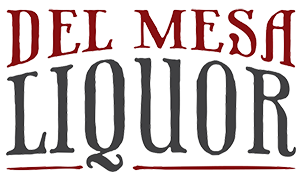Welcome to our guide on the different types of wine corks. Wine enthusiasts and collectors know that proper wine storage is essential to preserving the taste and quality of their collection. One important factor in wine storage is the type of cork used to seal the bottle.
With so many different types of wine corks available, deciding which is the best for your wine collection can be challenging. That's where this guide comes in handy. We will discuss the pros and cons of the most common wine corks: natural corks, synthetic corks, screw caps, and glass stoppers.
If you want to purchase wine corks, an online liquor store can be an excellent resource for finding the right type of cork for your wine collection. So, let's dive into the world of wine corks and learn how to choose the perfect cork for your wine storage needs.
1. Natural Corks
Natural corks are the traditional type of cork used to seal wine bottles. They have been used for centuries and are still the most common type of cork used in the wine industry. Natural corks are made from the bark of the cork oak tree and are harvested by hand every nine years. They are porous and allow a small amount of air to enter the bottle, which can help the wine mature and develop its flavor over time.

Image: Freepik
Pros
One of the most significant advantages of natural corks is that they are biodegradable, renewable, and sustainable. They are also porous, which allows a small amount of air to enter the bottle, allowing the wine to mature and develop its flavor over time.
Additionally, natural corks are the most common type of cork used in wine bottles, so you'll likely find them at your local alcohol store or online liquor store.
Cons
Despite their popularity, natural corks are not 100% airtight and can allow a small amount of air to enter the bottle, which can cause oxidation and spoilage of the wine. They can also be prone to cork taint, a musty or moldy smell that can ruin the taste of the wine. Additionally, natural corks can be challenging to remove from the bottle and break apart if not extracted correctly.
2. Synthetic Corks
Synthetic corks are a relatively new type of wine closure that has recently gained popularity. They are designed to mimic the look and feel of natural corks while providing an airtight seal that can help preserve the quality of the wine.
In this section of our guide on the different types of wine corks, we will take a closer look at synthetic corks, their benefits, and their drawbacks so that you can make an informed decision when purchasing wine from an online liquor store.

Image: Freepik
Pros
One of the significant advantages of synthetic corks is that they provide an airtight seal that can prevent spoilage or oxidation of the wine. Unlike natural corks, synthetic corks are non-porous and don't allow air to enter the bottle.
This can help preserve the quality and flavor of the wine over time. Synthetic corks are also affordable and easy to use. They don't require any special tools or techniques to insert or remove them from the bottle. Additionally, synthetic corks don't have the risk of cork taint, a musty or moldy smell that can ruin the taste of the wine.
Cons
Some wine experts argue that synthetic corks can affect the taste of the wine and may not allow the wine to mature and develop its flavor over time. Synthetic corks are also prone to breaking apart when being extracted from the bottle, which can be frustrating for wine collectors.
Finally, synthetic corks may not be as aesthetically pleasing as traditional corks, and some consumers may prefer the look and feel of natural corks or glass stoppers. Overall, synthetic corks can be a good choice for wine collectors who value affordability, convenience, and airtight sealing. However, it's important to consider the potential drawbacks before purchasing from an online liquor store.
3. Screw Caps
Screw caps are a relatively new type of wine closure that has become increasingly popular recently. They offer a convenient and easy-to-use alternative to traditional corks, but there are some pros and cons to consider before making the switch.
Pros
Screw caps provide an airtight seal that can prevent spoilage or oxidation, which can be a significant advantage for wines that are meant to be consumed within a few years of bottling. They are also easy to open and require no special tools or corkscrews, making them a convenient option for picnics, outdoor events, or casual occasions.
Additionally, screw caps eliminate the risk of cork taint. This musty or moldy smell can ruin the taste of the wine, which is a significant benefit for wine collectors who want to ensure the quality of their collection.

Image: Freepik
Cons
Screw caps have been criticized by some wine enthusiasts who argue that they may not allow the wine to mature and develop its flavor over time, as traditional corks do. Additionally, screw caps are not as aesthetically pleasing as traditional corks and may not be suitable for high-end or collectible wines. Finally, some people associate screw caps with lower-quality wines, so there may be a perception issue to consider when using them.
4. Glass Stoppers
Glass stoppers are an elegant and unique alternative to traditional wine corks. They offer a reusable and airtight seal that can help preserve the quality of your wine. In this section of our blog post, we'll take a closer look at the pros and cons of using glass stoppers and what you should consider when using them to seal your wine bottles like that of Pinot Noir from an online liquor store.
Pros
One of the most significant benefits of glass stoppers is that they are reusable and can be used multiple times. They also provide a completely airtight seal, which can help prevent spoilage and oxidation of the wine.
Glass stoppers have an elegant appearance that can make them a good choice for special occasions. They don't have the risk of cork taint, which can affect the taste of your wine.

Image: Freepik
Cons
Glass stoppers can be expensive compared to other wine corks, making them less accessible to some wine collectors. They may not fit all types of wine bottles, which can limit their versatility. Additionally, glass stoppers can be difficult to remove from the bottle without a proper tool, which can be frustrating for some users.
Final Thoughts
In conclusion, choosing the right type of cork for your wine collection is an important decision that can impact the taste and quality of your wine. Whether you prefer traditional natural corks, affordable synthetic corks, modern screw caps, or elegant glass stoppers, there are pros and cons to each type of cork that you should consider before making a decision.
Thankfully, an online liquor store can help you choose the right cork for your wine collection based on your preferences and the types of wines you're storing. Don't hesitate to ask for advice from online liquor store staff, as they are knowledgeable and can guide you through the selection process.
Ultimately, choosing the right cork can help you preserve your wine's taste and ensure it stays fresh for years to come.
 Log in
Log in
 My Wishlist
My Wishlist Reward Program
Reward Program Corporate Gifts
Corporate Gifts Customer Help
Customer Help


